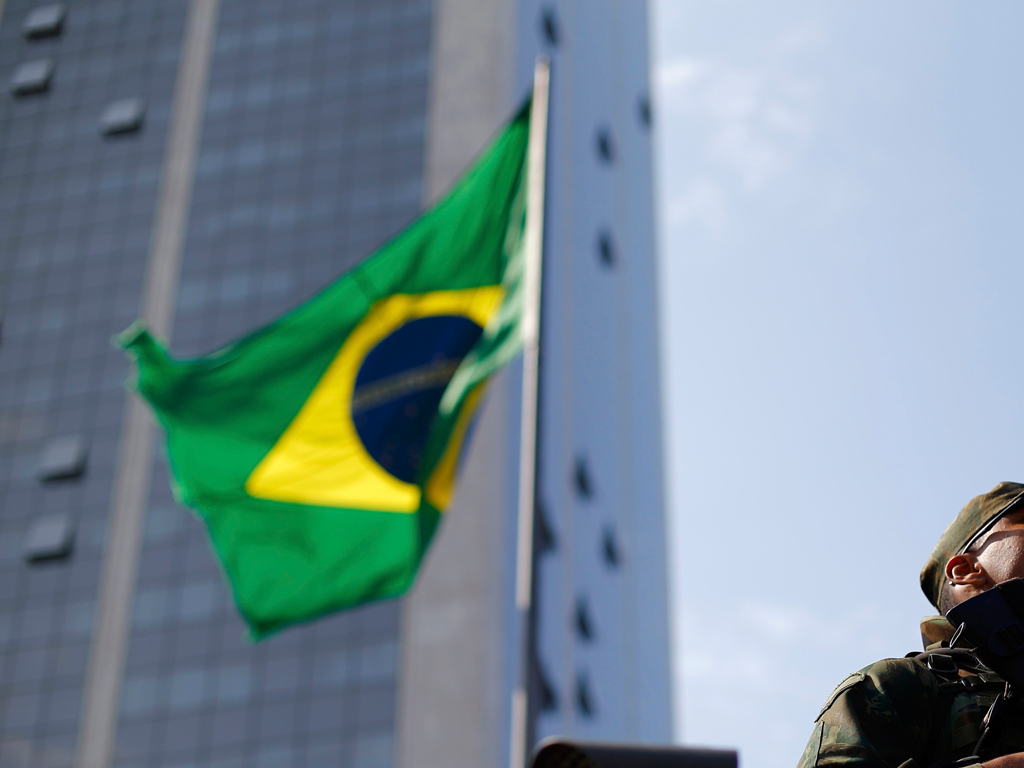 Investor optimism is on the rebound in Brazil after the government made progress on a pension reform bill, shifted its focus to tax reform and has cut interest rates to record lows, even as Mexico's outlook deteriorates.
Investor optimism is on the rebound in Brazil after the government made progress on a pension reform bill, shifted its focus to tax reform and has cut interest rates to record lows, even as Mexico's outlook deteriorates.
The latest Reuters poll on Brazil's equity market, Latin America's largest, showed its Bovespa index rising an additional 18.22% from current levels by the end of the year to a record 115,000 points, according to the median estimates of 12 strategists and traders.
The estimate is slightly higher than the last Reuters poll in May, but optimism remains below where it was in February, when the government of Jair Bolsonaro had just come into office and investors then expected the Bovespa to rise to 120,000 points.
For Mexico, by contrast, strategists now estimate the S&P/BVM IPC index will close at a median of 45,500 points, up about 12% from where it stands now, but still over 5,000 points short of its July 2017 high. That estimate marks the third downward revision in a row.
It is then expected to gain another 2% by end-2020.
In Brazil, strategists expect the Bovespa to rise an extra 13% in 2020, reaching 130,000 points. The Bovespa has doubled since the beginning of 2016, and will have more than tripled in five years if those estimates prove accurate.
Strategists have raised their expectations on Brazil despite macroeconomic signs of a global slowdown and escalating tensions between the United States and China, which have hit the Brazilian real more than almost any other emerging market currency.
The Bovespa has also been affected, falling 10% since mid-July when it reached a record high, and is this week down to 96,000 points. But the pullback could also be an opportunity.
"When it hits 95,000, or 93,000 points, that is the time to buy in," said Jose Francisco de Lima Gonçalves, chief economist at Banco Fator.
Strategists broadly agree that in the case of Brazil the market has already priced in a sweeping pension reform bill that received preliminary congressional approval in July.
"Yes, the market has turned the page," said Karel Luketic, chief strategist at XP Investmentos, suggesting that final approval would not do much for investors.
Brazil's benchmark interest rate has also fallen to a record low and may not have yet reached its floor, which analysts hope will push Brazilians into equities, despite foreign investors cutting their exposure this year.
"The local investor is more than compensating the exit of foreign investors," said André Carvalho, head of macro, strategy and fixed-income research at Bradesco BBI. "The marginal buyer is Brazilian."
The optimism about Brazil is almost nonexistent in the case of Mexico, as President Andrés López Obrador's government has struggled to drive growth.
"In Mexico, the economic slowdown has been worse than anticipated," said Luis Alfonso Alvarado, an analyst at Banco Base. "This coincides with continuing uncertainty over what measures will be taken with Petroleos Mexicanos and the effect those could have on public finances."




























Comments
Comments are closed.